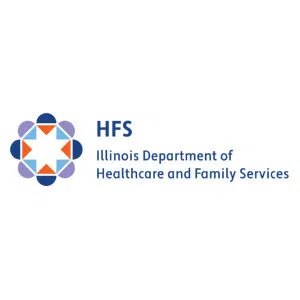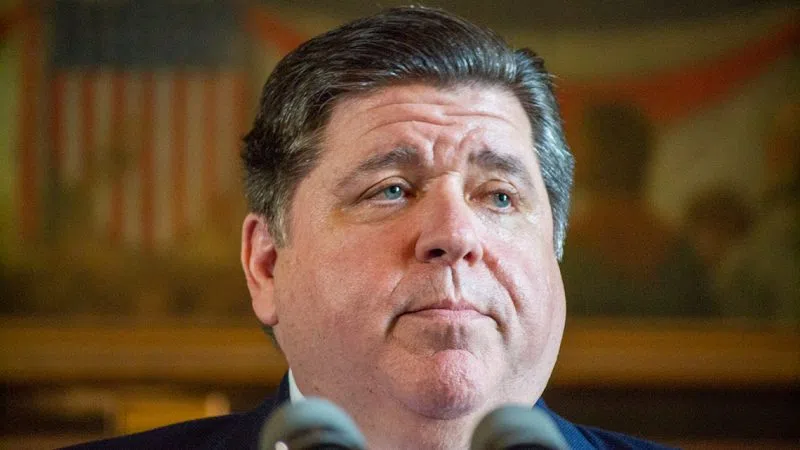2025 marks 60 years of the US’s means-tested health insurance program, Medicaid.
Medicaid, first envisioned as part of 36th President Lyndon B. Johnson’s Great Society, has massively grown in importance for Americans living below the poverty line as US healthcare has uniquely ballooned in costs: roughly 3.4 million people in Illinois, or approximately one in four Illinois residents have their healthcare covered through Medicaid. Illinois Medicaid is the largest health insurer in the state, providing coverage to people and supporting the healthcare infrastructure in every region of Illinois.
“Medicaid is a vital program for both Illinois residents and people across the country,” said IHFS Director Elizabeth Whitehorn. “This program is literally a lifeline to healthcare for millions of people in our state, which makes it more important than ever that we preserve the program.”
Illinois has been a leader in implementing programs to increase quality and accessibility within the Medicaid program. Under the Pritzker Administration, HFS has:
- Extended full benefit Medicaid coverage through 12 months postpartum with continuous eligibility, making Illinois the first state to do so in 2021;
- Received federal approval for the 1115 Healthcare Transformation Demonstration waiver, allowing Medicaid to cover health-related social needs like housing and food insecurity as well as re-entry services to help individuals transition back to the community following a period of incarceration;
- Convened the Advisory Council on Financing and Access to Sickle Cell Disease Treatment and Other High-Cost Drugs and Treatments, which issued its recommendations for expanding access to and sustainably paying for emerging and highly expensive therapies;
- Been selected to participate in the federal Certified Community Behavioral Health Clinic (CCBHC) demonstration model, which expands access to integrated mental health and substance use treatment services and launched 19 CCBHCs;
- Been chosen to participate in the new federal Transforming Maternal Health (TMaH) Model, through which HFS will receive $17 million over 10 years to develop an integrated approach to care through pregnancy, childbirth and the postpartum period;
- Implemented Medicaid coverage for perinatal doula and lactation consultant services;
- Worked to expand coverage for home visits and midwives for those served by Medicaid;
- Launched the Healthcare Transformation Collaborative (HTC) in 2021 to close gaps in healthcare services and eliminate barriers to accessing care. HTCs leverage their shared resources to create stronger and more innovative strategies across the healthcare landscape;
- Undertook a comprehensive response to the COVID-19 pandemic, followed by the unwinding from the Continuous Medicaid Coverage Requirement that included a statewide advertising and outreach campaign that prioritized keeping as many eligible enrollees covered as possible. As a result, Illinois was among the leading states in the nation for retaining customers during the unwinding and the restart of annual redeterminations with 78% maintaining coverage;
- Expanded the All Kids program, Illinois’ Child Health Insurance Program (CHIP), in 2022, eliminating premiums and co-pays for families with incomes above the Medicaid threshold level, and making all children eligible for the Vaccines for Children program;
- Collaborated with the Illinois Department of Children and Family Services (DCFS) to launch the YouthCare program, a specialized health plan that offers coordinated care services for current and former youth in care;
- Implemented the program All-Inclusive Care for the Elderly (PACE) with the goal of significantly improving the lives of participants and their families. The program is designed to offer comprehensive health services for seniors living in the community who would otherwise qualify to live in a nursing facility;
- Implemented new coverage for diabetes prevention and management programs;
- Implemented quality- and equity-driven nursing home rate reforms that hold nursing facility owners accountable by tying new funds to improving care for Illinoisans;
- Created a Medicaid Managed Care Organization (MCO) Claims Clearinghouse for greater transparency into claims rejections.
In addition to being a critical program for the millions of enrollees, Medicaid is a significant economic driver in the state, supporting hospitals, behavioral health providers, nursing homes, physicians and clinics and many other types of providers. During the last fiscal year, the Illinois Medicaid program invested more than $20 billion to support hospitals, long-term care facilities, pharmacies, and physicians. Data from 2024 shows that Illinois’ hospitals and health systems – most of which serve Medicaid enrollees – generate more than $117 billion for the state each year.
Medicaid also provides significant revenue for education and local governments. Nationally, Medicaid is the third-largest funding stream for K-12 public schools. In state fiscal year 2024, the Illinois School-Based Health Services program paid for healthcare services for approximately 244,000 Medicaid-enrolled students.
The federal matching funds Illinois receives to administer Medicaid are critical to ensuring that the program can continue to deliver current essential healthcare services. As a joint federal-state program, the federal government shares the cost of administering Medicaid by matching state expenses for providing services to customers. States work with federal counterparts at the federal Centers for Medicare and Medicaid Services (CMS) to ensure that the basic slate of benefits are available to Medicaid customers, and states also have the flexibility to tailor their programs and benefit offerings.
Now, however, conservatives in Congress have begun eyeing cuts which experts warn will lead to the elimination of the Medicaid program: the GOP majority in the House of Representatives this past week pushed for the latest in a series of budget proposals. specifically targeting budget cuts which encompass the entirety of the federal budget for Medicaid. The Republican administration has announced it will reject funding requests for Designated State Health Programs, which represent $2 billion in funding for state healthcare programs such as those aimed at non-direct medical care.
States currently pay ~30% of the total costs of Medicaid, with the federal government supplying up the remaining funds. Many members of the majority party campaigned on assurances that they would not cut Medicaid funding – all but two Republicans in the House voted in favor of last week’s proposal for cuts. Thomas Massie of Kentucky and Victoria Spartz of Indiana joined all 212 voting Democrats in opposition.
“On the 60th anniversary of Medicaid,” said Governor JB Pritzker, “I am reflecting upon the millions of working families across Illinois that depend on these live-saving services.
“Even as we uplift how this vital healthcare program has improved the lives of millions of Illinoisans over the last six decades, critical funding for Medicaid is at risk because Donald Trump and Congressional Republicans want to give massive tax cuts to their wealthy friends. I will continue to fight to protect Medicaid, and I encourage everyone to stand up, speak out, and show up.”








Comments